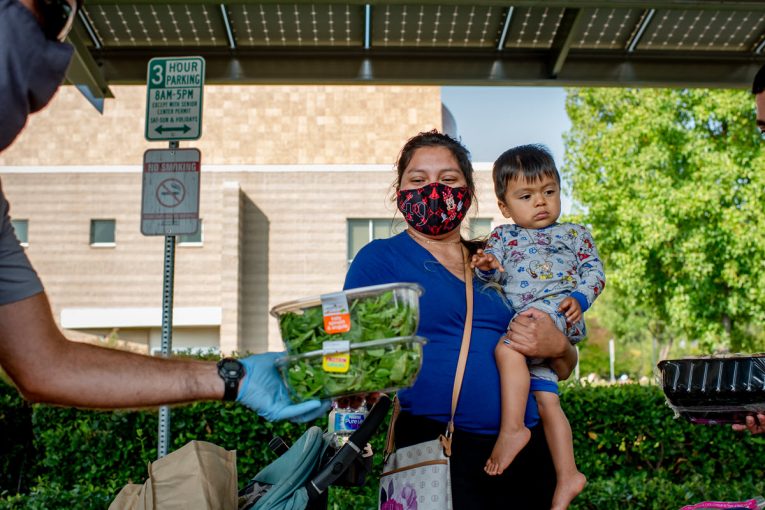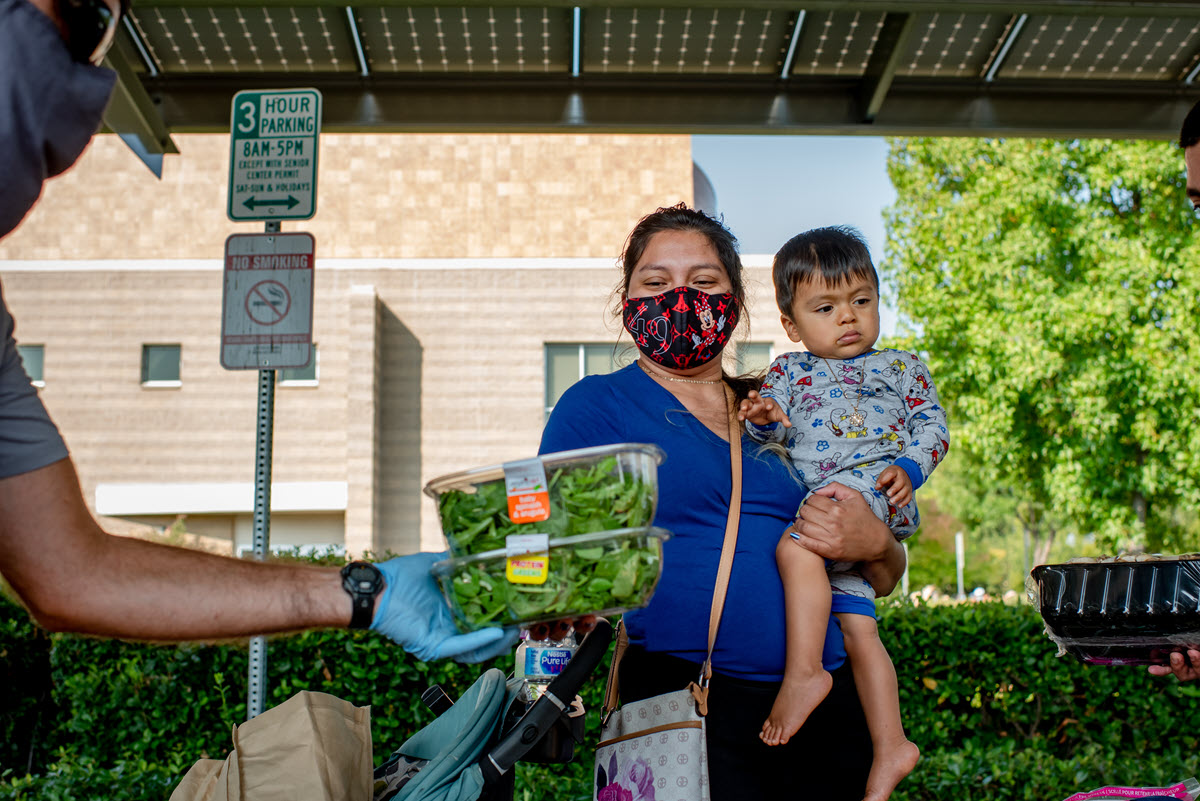
 Special To the Vanguard
Special To the Vanguard
In a quest to further contribute to the health, prosperity, and enhanced quality of life of Yolo County residents, Yolo Food Bank has announced new mission and vision statements to inspire the organization’s work and the community’s engagement in it in the new year.
“The pandemic emergency revealed just how fragile food security had been all along for so many vulnerable, underserved people in Yolo County,” explained Yolo Food Bank Executive Director Michael Bisch. “In considering the underlying causes for this, and what powerful lessons from the COVID-19 crisis could influence the future of food access and nutrition in the county, it became clear that our previous mission no longer was descriptive of the service we were providing, much less the potential to impact and advance the entire local food system moving forward.”
Previously “To end hunger and malnutrition in Yolo County,” Yolo Food Bank’s new mission aims to “Durably increase food and nutrition security and help to create an equitable and sustainable local  food system by:
food system by:
- Connecting individuals and families to healthy, high-quality food and resources;
- Collaborating with community partners to deepen outreach and address food needs; and
- Convening key players in the community to assess progress and plan collective actions.”
The actions within the mission statement are intended as Yolo Food Bank’s unique contribution to a refreshed vision that Bisch positioned as, “the ideal reality we’re working to build.” The vision statement heralds a Yolo County that will be “a thriving community where everyone has the resources they need to experience health, prosperity, and a high quality of life.”
Further articulating how the new mission will produce that vision, the organization has developed a “Theory of Change” documenting the strategic pathways leading to the big picture outcomes that Yolo Food Bank seeks to advance. The plan acknowledges that Yolo Food Bank’s ambitious mission necessitates a mindset of empathy, equity, and a willingness to innovate, and that every aspect of the organization’s work must envelop this approach.
Yolo Food Bank’s new mission, vision, and theory of change can be viewed in their entirety at https://bit.ly/3H0Fb0w.
“The conditions that preceded the pandemic, as well as those that have resulted from it, demand that food assistance programs shift to a more sophisticated approach.” Bisch stated. “Yolo Food Bank has spent much of the past year preparing to embrace this mission and vision by engaging in data collection and analysis to better understand the impact of the services we’re providing already and the residents benefitting from them.
Additionally, we’ve been collaborating with other organizations and thought leaders to gain new understandings and experiences, sparking our own innovation.”
“Eliminating food insecurity on our UC Davis campus continues to be a primary area of concern and Yolo Food Bank’s robust partnership has been critical in that pursuit,” explains UC Davis Chancellor Gary S. May. “The food assistance service that Yolo Food Bank provides to ASUCD The Pantry, the Aggie Compass Basic Needs Center, and Solano Park Pantry is essential in supporting our students’ health and academic achievement. Our partnership continues to evolve with a forthcoming food distribution debuting on the UC Davis Campus Quad in a few weeks.”
“The food security conversation in Yolo County must move beyond one about simply handing out calories, to one about the role of nutrition in improving people’s lives holistically, individual health in particular,” Bisch added. “Until abundant, nutritious, culturally-appropriate foods consistently are available for all Yolo County residents, food equity will remain elusive.”
Community health and nutrition public policy leader Robb Davis, a former mayor of Davis, joined Yolo Food Bank last Spring as the organization’s first-ever Impact and Innovation Officer, adding structure to these efforts. Also in 2021, Yolo Food Bank organized and hosted the inaugural “Food For Fairness” Summit, joined in plans for the new Yolo Food Hub initiative to better connect local agricultural workers with the very foods they help to farm, contributed to Valley Vision’s “2021 Sacramento Region Food System Action Plan,” and continued to pursue a so-far unsuccessful attempt at a sustainably-funded surplus edible food recovery program with local jurisdictions, compliant with Senate Bill 1383 requirements.
“Congruent with our 2021 Regional Action Plan, we look forward to collaborating with Yolo Food Bank to increase our local food system’s resiliency,” shared Valley Vision CEO Evan Schmidt. “Our recent Food System Resilience Poll showed that self-reported food insecurity was higher here than the US average overall with disparities existing across racial and economic lines and among age groups, underscoring the importance of food equity initiatives.”
Amassing sufficient fiscal resources is the biggest challenge to Yolo Food Bank’s ability to execute its new mission, and bring the outcomes inspired by the vision to fruition, according to Bisch.
“More than 90% of Yolo Food Bank’s annual funding is dependent upon generous individuals and businesses in the community who believe in the impact of our mission and its potential for terrific outcomes,” Bisch related. “The one-time governmental funding we received earlier in the pandemic has dried up, and there has not been any further public funding yet allocated to replace it.”
“As a result, in 2022 we’re pivoting toward investing our donors’ generous contributions in the food equity work of our new mission and vision, setting aside state-mandated activities that are the responsibility of local governments to fund and execute such as SB 1383 edible food recovery. Yolo Food Bank must focus upon advancing the healthy outcomes that all local residents deserve, thereby increasing their quality of life.”
“We believe good health entails more than just medical services. Better nutrition absolutely plays a role in overall health and well-being,” stated Tammy Powers, interim chief administrative officer for Sutter Davis Hospital. “It’s incredibly important for us to collaborate with community organizations such as Yolo Food Bank that are committed to addressing systemic issues that lead to food insecurity and poor individual health. Through their robust nonprofit partner organization program, Yolo Food Bank can help increase their own capacity, as well as the capacity of the more than 80 nonprofits that access food and resources from their facility.”
Yolo Food Bank has a 50-year track record of reducing poverty in Yolo County. To learn more about food access countywide, or to provide funds or volunteer time, visit www.yolofoodbank.org.
